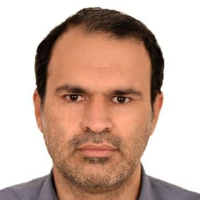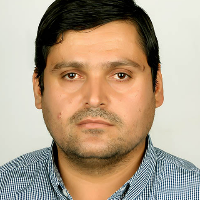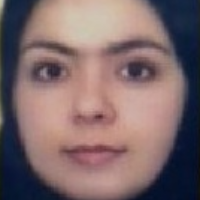Designing and validating a model for assessing the personal excellence of school teachers
by reviewing different models of organizational excellence, it can be concluded that in addition to the fact that there are human resources in all models of excellence, but over time the share of human resources is increasing and this has led researchers to design models for excellence of human resources. it may be noted that one of the most important of these traits, which is a very general aspect of individuals, is the concept of personal excellence as a real principle in achieving happiness and perfection that can put organizations on purpose. the concept of personal excellence is spiritual aspect of character and people with high excellence, unassuming, faithful, empathetic, and feeling of intimacy with their creator. personal excellence is a personality trait associated with spiritual and spiritual ideas. the study of personal excellence in the organization indicates that personal excellence in different societies is under the influence of social political philosophy on each of those societies. accordingly, a large number of organizations managers are focused on organizational excellence in the context of their human capital, so that the issue of personal excellence can be considered as a fundamental concept in enhancing employees productivity and consequently the success of organizations in achieving their goals. In addition to a comprehensive view of all aspects of a transcendent organization, this model should have a special focus on teachers as the human capital of the education and training organization. Assessing teachers' personal excellence will determine what individual characteristics they need to have in order to excel and excel in their field of work, and clarify where the problem is in this area and where it needs to be improved. It also helps education administrators get to know their teachers better and make sure their decisions are based on facts, not assumptions and conjectures. evaluating personal excellence of teachers to improve performance and productivity as a criterion for selection of elite teachers is a category that has been neglected in the organization's processes and education management. Paying attention to this category requires access to the paradigm and models to assess it. abstract from the essential aspects of this study, there is a lack of research regarding the study of personal excellence of teachers.
The purposeof this study was to design and validate a model for assessing the personal excellence of school teachers in Razavi Khorasan province.
The present study, in terms of purpose in the field of research and development and in terms of how to collect the required data, has been carried out in a mixed exploratory research group in two quantitative and qualitative phases. In the qualitative phase, based on the analysis of qualitative data obtained from semi-structured interviews with professors of educational sciences and successful principals and deputies of schools in Khorasan Razavi province and analysis of interviews using content analysis approach and at the same time according to them with theoretical foundations; In the quantitative phase, data were extracted using a questionnaire and structural equation modeling tools and a conceptual model of the research was designed. Participants in this study consist of two parts. In the qualitative section, purposive sampling method has been used to select a statistical sample. The criteria for selecting experts are theoretical mastery, practical experience, willingness and ability to participate in research and access. A noteworthy point in determining the number of experts is to ensure the comprehensiveness of different views in the research. Therefore, in the qualitative section, 19 professors of the faculties of educational sciences of the universities of Khorasan Razavi province, successful principals and deputies of schools in Khorasan Razavi province have been purposefully interviewed. The statistical population of this research is a small number of 875 primary school principals in Mashhad. To access the statistical population, first the list of seven districts of Mashhad was separated and then it was divided into categories. Quantitative sampling method is a random stratified method proportional to the selected volume. To determine the sample size, first 30 people were pre-sampled from the statistical population and according to the standard deviation of this sample (which was 0.503) and according to the population size (875) and placement in the formula Cochrane random sampling, the minimum sample size was 267. In this study, in order to obtain credit in the qualitative stage, long-term involvement and continuous observation and review by the participants have been used. Also, each interview has been listened to and reviewed several times. After the interview, the interview data with the interviewees was checked. Also in the qualitative part, in order to ensure the data and obtain reliability in the heuristic model, the kappa coefficient or the agreement of the two coders has been used. In this study (15%) of the interviews coded by the researcher were given to one of the experts for evaluation and the results of the coding of the two researchers showed that the kappa coefficient calculated by Spss software was 0.714, which is more It is from 0.6. The assumption of the independence of the extracted codes is rejected and the interdependence of the extracted codes is confirmed. In other words, the research data has the necessary reliability. Experts have also been consulted to ensure that the codes are categorized correctly. In the quantitative part, the goal is practical. In order to obtain validity, face validity and content have been used by professors and confirmatory factor analysis. For reliability, the reliability coefficient of each category was obtained using Cronbach's alpha test.
In the first step, the results of the interviews with the content analysis approach, identified 57 open source 13 subcategories (thinking skills, intelligence, research, self-awareness, self-efficacy, teamwork, theology, decision-making skills, organizational citizenship behavior, ethical characteristics, creativity and initiative Job motivation and work-life balance) and 3 main categories (personal, psychological and organizational) and in the second step using structural equation modeling, the validity and reliability of the model were determined.
Based on the findings, it can be concluded that personal excellence is a good model for evaluating teachers' performance, so it is necessary to remove its barriers and strengthen its facilitators.
- حق عضویت دریافتی صرف حمایت از نشریات عضو و نگهداری، تکمیل و توسعه مگیران میشود.
- پرداخت حق اشتراک و دانلود مقالات اجازه بازنشر آن در سایر رسانههای چاپی و دیجیتال را به کاربر نمیدهد.





